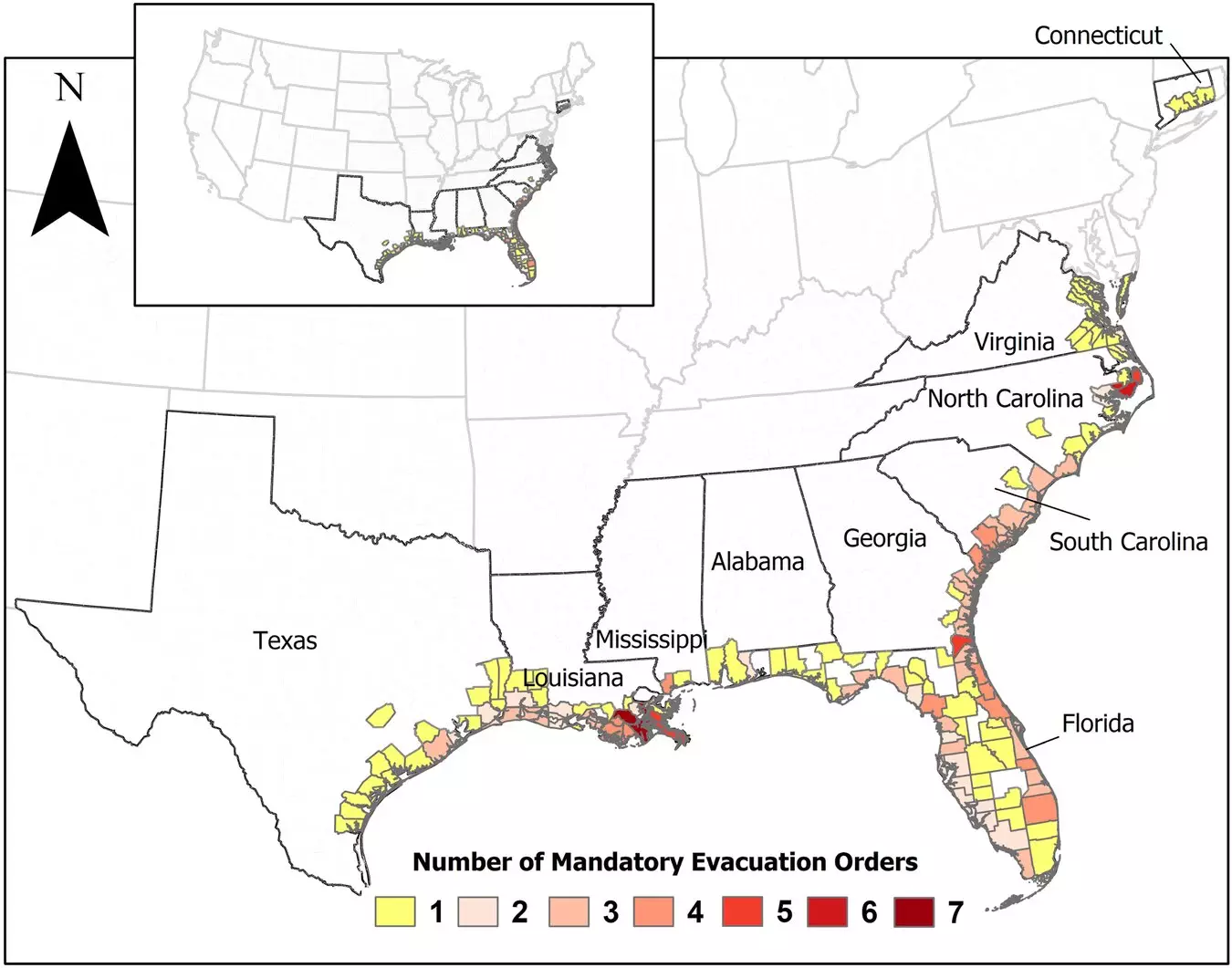As hurricane seasons become more intense due to climate change, the need for effective evacuation strategies and policies is more crucial than ever. A team of University of Virginia researchers has taken a significant step forward by creating the first-ever database of hurricane evacuation orders in the United States. This database, known as HEvOD (Hurricane Evacuation Order Database), provides a comprehensive collection of evacuation orders issued by official state and local agencies in response to hurricanes between 2014 and 2022. The importance of this database in improving community resilience, policy-making, and ultimately reducing loss of life cannot be overstated.
Creating the HEvOD database was not without its challenges. The researchers had to navigate through various complexities, including the wide variation in evacuation laws and policies across different states. States differ in who has the legal authority to order mass evacuations, how evacuation orders are communicated, and the platforms used for dissemination. This variability made the process of data collection and verification time-consuming and challenging. Despite these obstacles, the researchers successfully compiled a comprehensive database that serves as a valuable resource for analyzing the effectiveness of evacuation strategies.
Local and state government officials can utilize the HEvOD database to assess the effectiveness of past evacuation orders and improve their emergency response plans. By understanding where, when, and how evacuations have been ordered in the past, officials can optimize their strategies and communication methods, enhancing public safety and community resilience. The database serves as a foundation for detailed analysis of evacuation procedures, leading to more targeted and timely evacuation orders, better resource allocation, and reduced loss of life during hurricanes.
Research Opportunities
The HEvOD database also opens up new research opportunities in various disciplines. Social scientists, urban planners, and environmental scientists can analyze evacuation responses in diverse communities using this data. The database allows for the integration of other data sources, enabling researchers to identify trends, predict the need for evacuations more accurately, and improve policy decisions. The significant variation in how different jurisdictions implement and communicate evacuation orders underscores the complexity of emergency evacuations and highlights the importance of a centralized database to capture these variations comprehensively.
Future Plans
The researchers plan to update and expand the HEvOD database annually after each hurricane season. By continuously enhancing the database and welcoming contributions and collaboration, they aim to keep it relevant and effective for researchers and emergency management officials. Users can assist by adding missing data or correcting errors, further improving the quality and utility of the database. Through ongoing research and data collection, the HEvOD database will continue to play a crucial role in improving hurricane evacuation strategies and ultimately saving lives.
The HEvOD database represents a significant milestone in hurricane evacuation research. By providing a comprehensive collection of evacuation orders and data on past hurricane events, the database serves as a valuable resource for researchers, policymakers, and emergency management officials. As climate change intensifies the frequency and severity of hurricanes, the need for effective evacuation strategies becomes more pressing. The HEvOD database offers a crucial tool for enhancing public safety, community resilience, and ultimately reducing loss of life during hurricanes.


Leave a Reply